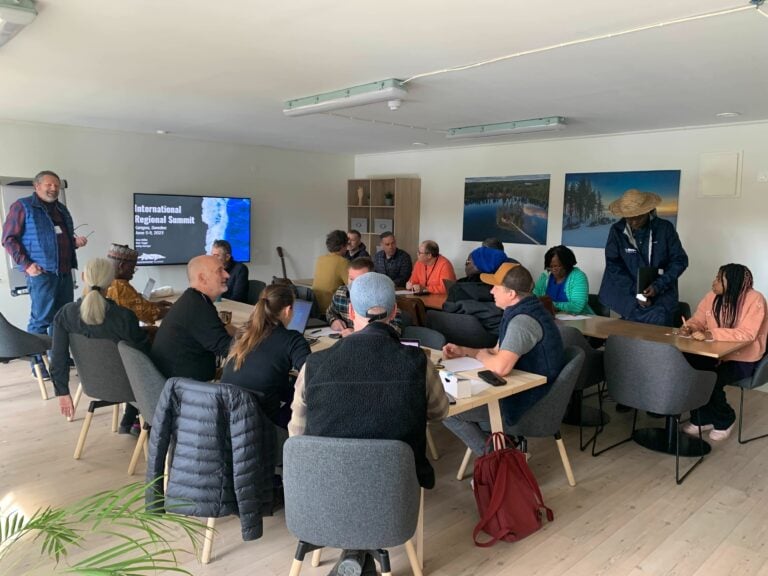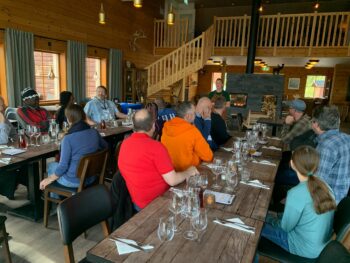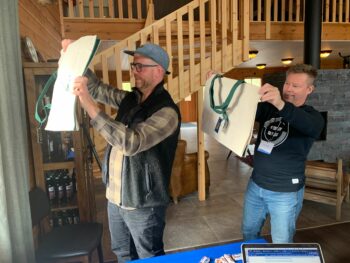Waterkeepers Meet in Sweden for Regional Summit
By: Chris Wilke

Skill building in the far North, with 24 hours of daylight, sled dogs, and coffee.
Earlier this month, Waterkeepers from Africa, the Middle East, Europe, Australia and the Caribbean traveled to the far north of Sweden, above the Arctic Circle for Waterkeeper Alliance’s International Regional Summit.
Lapland was already experiencing 24 hours of daylight when the Waterkeeper groups arrived in Kangos, Sweden, amid extensive forests of dwarf pine trees, grazing reindeer and myriad lakes and rivers. The hosts at Explore the North lodge made sure that the travelers experienced warm Scandinavian hospitality, locally-sourced foods using traditional preparation methods, and the all-important Fika ritual of late afternoon coffee -locally brewed extra-strong and unfiltered, ideally over an open fire in sturdy wooden huts called Kota, based on designs used by Indigenous Sami people of the area. 
The intimate setting for the Summit provided for one-on-one interaction, and highly focused hands-on trainings by local experts, Waterkeeper Alliance staff and the Waterekeeper participants who shared their experience and expertise. Due to the lodge’s unique situation on a small lake and the 100+ sled dogs kept on site for competitive winter dogsledding, the participants did not need to go far for connecting to the outdoor potential of Lapland.
“For me, the most valuable aspect of the Regional Summit is sharing our different struggles but also meeting many people from the Waterkeeper movement” said Cheikh Fadel Wade , Bargny Coast Waterkeeper [translated]
The International Regional Summit hosted 10 learning sessions, featuring topics ranging from the work of the Swedish Baltic Salmon Rivers Waterkeeper’s restoration of local watersheds and fisheries; hydropower dams and their associated impacts on waterways; improving justice, equity, diversity and inclusion outcomes in water protection work; the impacts of mining on water quality; restoring hydrologic function to heavily altered waterways; climate and fossil fuels; campaign planning for impact; a mock campaign planning work session; and a presentation from European fish groups on the salmon life cycle and fisheries protection. Participants shared knowledge and expertise while developing new tools to put into practice at home in their watersheds.
A highlight of the Summit was the focus on the water-climate nexus and how water protection work is climate work, and vice-versa. As climate impacts mount around the world, much of the impacts are experienced through changes to water and precipitation and the Waterkeepers explored how they can incorporate climate change adaptation into their water protection work. In the face of these impacts, a number of them highlighted their ongoing campaigns against fossil fuel extraction projects in their watersheds, sharing both challenges and victories. These extraction projects for coal, oil and gas threaten their watersheds directly, while also fueling the global climate crisis. Discussions about the impacts of hydropower as well as so-called alternative energy sources and the associated mining and mineral extraction required to scale it up globally served as a reminder that the solutions will not be easy, and that watershed protectors will always be needed – even in a post carbon world.